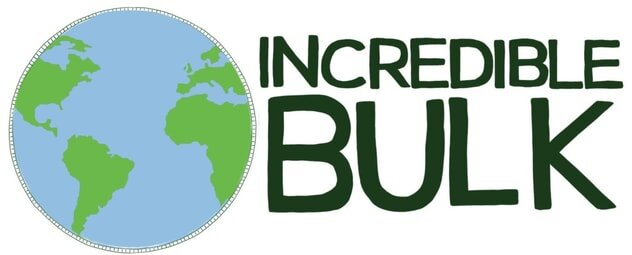Why Refuse, Reduce and Reuse come before Recycling
/Issues with plastic recycling first became big headline news in 2017 when China announced it would no longer be accepting waste from the UK. Britain had been shipping up to 500,000 tonnes of plastic for recycling in China every year, accounting for over 25% of our total plastic waste.
The ban highlighted how the UK didn’t have sufficient recycling infrastructures in place to deal with our own waste, that we had simply been ‘hiding’ it by shipping it out of the country. Despite China’s ban we have continued to ship two thirds of our recycling overseas, shifting the problem to other areas, as exposed by the 2019 BBC documentary War On Plastic. The documentary reported that in 2018 Malaysia took up to 130,000 tons of our plastic waste, 10 times what it has done previously before the China ban. And since then it has been exposed by Greenpeace that Turkey recieved 209,642 tonnes of plastic waste from the UK in 2020, found to be dumped in rivers, on beaches and in illegal waste mountains.
Plastic wasn’t designed to be recycled, it was designed as a material that would last, so with recycling techniques it becomes weaker with each recycling, so unlike aluminium foil, is not indefinitely recyclable. An additional problem with plastic recycling is that there are several different types of plastic, which all have different recycling needs and it is not uncommon for a single use item, such as a drinks bottle, to have multiple plastics used for different components, making plastic recycling contamination common. It is labour intensive to separate and sort making the process of recycling plastics expensive, meaning that it is cheaper for companies to buy virgin plastic for their new packaging rather than invest in recycled materials.
Plastic recycling has also become even more complicated in recent years due to developments of new bio-based plastics which have completely different recycling needs, leading to yet another source of contamination in our already insufficient recycling infrastructure. We’ve all been fooled by ‘green washing’ either intentional or not, and bought into what is perceived to be a ‘greener’ packaging option without fully understanding that the waste streams needed to deal with this new material have not been put in place and it is therefore continuing to add to the current plastic crisis.
It is for all these reasons that refusing, reducing and reusing are advised before recycling. Recycling can help the problem, especially if new greener materials are developed alongside appropriate recycling methods for them (see article below about new plastic below), but the current crisis is too large for us to recycle out of. If buying a recyclable item look into how and where it is recycled, is it worth it? We must understand that our over consumption is the key here and we have to stop producing and buying the issue, not simple, but possible.
In the War On Plastic documentary a single street in the UK counted 15,774 plastic items; based on 27 million households in Britain that's a whopping 19,500,000,000 pieces of plastic inside UK homes. In 2018 the bottled water industry grew by 7% in the UK despite our increased awareness and knowledge of the plastics crisis and having access to safe water direct from the tap.
We have to start looking carefully at the impact of our choices. In the UK supermarkets create around one third of all plastic produced and although small changes are happening these are much too small and happening too slowly. In Cornwall we are spoilt with access to local farmers and producers, often we can get produce direct and avoid the plastic packaging, there are also a number of refill shops around offering the possibility of avoiding single-use plastic packaging.
To find BBCs War On Plastic and further info
For further info on understanding plastic packaging
Listen to Which? podcast Is plastic packaging really that bad?
Guardian article on China’s Ban
Guardian article on Turkey ban
Mirror article on War On Plastic
To learn about a new plastic being developed that can be recycled indefinitely

